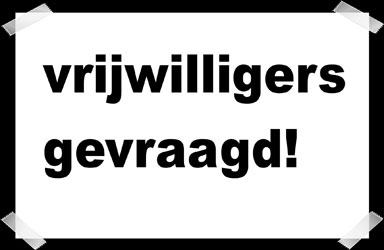
Samen met het persbericht “Wél XMRV-virus bij Nederlandse patiënten” is een webpublicatie van Ortho online gezet. waaruit blijkt dat het Whittemore Peterson Institute wel XMRV terugvond in de Nederlande stalen uit de negatieve XMRV-studie. Lees hier de uitgebreide reconstructie van de gebeurtenissen, op basis van onder andere een interview met Dr. Judy Mikovits, onderzoeksdirecteur van het WPI, en contact met Dr. Van Kuppeveld.
Ortho nr. 2, die vandaag naar de abonnees is verstuurd, bevat opnieuw een artikel over het retrovirus XMRV en de relatie met ME/CVS. Recente ontwikkelingen konden echter niet meer worden verwerkt in dit artikel. Daarom deze webpublicatie. Door: Toine de Graaf
Gendringen —16 april 2010. Onderzoekers van het UMC St. Radboud maakten in februari bekend in het bloed van Nederlandse patiënten met het chronisch vermoeidheidssyndroom (ME/CVS) geen XMRV-virus te hebben aangetroffen. Ze verzwegen echter dat Amerikaanse onderzoekers in bloedstalen van dezelfde patiënten dit retrovirus wél vonden.
Dit blijkt uit een brief die Annette Whittemore, baas van het Whittemore-Peterson Institute (WPI) in Reno, op maandag 12 april stuurde aan dr. Myra McClure.(1) De laatste is hoogleraar retrovirologie aan het Imperial College London én een van de auteurs van de eerste negatieve `replicatiestudie’ naar XMRV-besmetting bij ME/CVS.(2) In haar brief nodigt Whittemore McClure uit om samen te werken met het WPI bij het onderzoek naar XMRV. Ook klapt ze uit de school over de twee andere negatieve replicatiestudies die tot nu toe zijn verschenen, waaronder die van het UMC St. Radboud.
Emailcorrespondentie
De Nijmeegse experimenteel viroloog dr. Frank van Kuppeveld en internist prof. dr. Jos van der Meer vonden begin dit jaar in ingevroren bloed uit 1991-1992 van 32 Nederlandse CVS-patiënten geen spoor van XMRV. Ook in het bloed van 43 gezonde controlepersonen werd het retrovirus niet aangetroffen. Ze publiceerden hun bevinden eind februari online in de British Medical Journal.(3)
In haar brief geeft Whittemore echter aan dat het WPI, op verzoek van Van Kuppeveld, enkele bloedmonsters uit het Nederlandse onderzoekscohort heeft getest voordat de Nijmeegse studie werd voltooid. Het WPI vond hierin sporen van XMRV. Whittemore zegt over emailcorrespondentie te beschikken die aantoont dat Van Kuppeveld op de hoogte was van deze WPI-onderzoeksresulaten voordat hij zijn negatieve studie publiceerde. In zijn wetenschappelijke publicatie wordt echter met geen woord gerept over de samenwerking met het WP1.(3) De redactie van Ortho heeft op 14 april Annette Whittemore verzocht om een kopie van het emailverkeer met Nijmegen, maar dit verzoek is (nog) niet gehonoreerd.
Whittemore schrijft in haar brief verder dat Van Kuppeveld het WPI heeft gevraagd om reagentia en een positieve bloedstaal, om zo te kunnen bepalen of zijn testprocedures in staat waren om XMRV te kunnen vinden in positief bloed. Het WPI kwam tegemoet aan deze vraag. Whittemore vraagt zich in haar brief af waarom Van Kuppeveld in zijn onderzoek geen gebruik heeft gemaakt van deze materialen.
Bevestiging
De brief van Annette Whittemore roept veel vragen op over het Nijmeegse XMRV-onderzoek. De meest prangende vraag is of Van Kuppeveld de lezing van Whittemore kan bevestigen? En zo ja: hoeveel bloedmonsters uit het Nijmeegse onderzoekscohort naar Reno zijn gestuurd, en welk aantal door het WPI positief is bevonden? En last but not least: waarom de Nijmeegse onderzoekers hierover in alle talen hebben gezwegen in en rond hun onderzoekspublicatie in de British Medical Journal?
 |
| Viroloog F. van Kuppeveld. Foto NCMLS. |
Afgelopen woensdag meldde de redactie van Ortho zich telefonisch bij viroloog Van Kuppeveld, na hem eerst de brief van Annette Whittemore te hebben gemaild. Tijdens het telefoongesprek dat volgde, gaf de viroloog aan deze brief niet eerder onder ogen te hebben gehad. Van Kuppeveld zei niet op korte termijn te kunnen reageren: ‘Ik zal die brief eerst moeten bestuderen en daar minimaal met mijn collega’s over moeten gaan praten, die misschien in het buitenland zitten’.
Na enig aandringen bevestigde Van Kuppeveld echter de lezing van Whittemore. Al liggen de zaken volgens hem gecompliceerder dan uit haar brief blijkt. Zo is volgens hem ook een of meer van de 43 gezonde controlepersonen uit het Nijmeegse cohort door het WPI positief getest op XMRV. Bij Van Kuppeveld had dit vragen opgeroepen over de betrouwbaarheid van de WPI-methodiek. Daarnaast gaf de viroloog te kennen bij het WPI om meerdere bloedstalen te hebben verzocht, maar nooit meer te hebben ontvangen dan één XMRV-positief bloedmonster.
Zeven bloedmonsters
 |
| Onderzoeksdirecteur en leider XMRV-onderzoek Judy Mikovits. Foto WPI. |
Op zoek naar antwoorden benaderden we gisteren dr. Judy Mikovits, onderzoeksdirecteur van het WPI en leider van het XMRV-onderzoek. Zij verschafte ons in een telefonisch interview de nodige antwoorden. ‘Frank van Kuppeveld heeft ons zeven monsters gestuurd’, aldus Mikovits. ‘Ze waren genummerd 1 tot en met 7. Het ging om cDNA, dat hij had gemaakt uit RNA.’
Het WPI testte de zeven monsters met een geavanceerde PCR-techniek in een gesloten systeem, zodat geen contaminatie kon optreden. Drie monsters bleken positief. Nadat aan Nijmegen was gemeld welke nummers positief waren getest, kwam het bericht terug dat het ging om twee patiënten en één gezonde controlepersoon. Voor Mikovits was deze uitkomst conform verwachting. ‘We zijn nooit geïnformeerd over het aantal controlepersonen op die groep van zeven. Maar twee positieven op zeven is ongeveer wat ik had verwacht. Ik ging vooraf niet uit van een 100% score, zeker niet met PCR.’
Dat één controlepersoon positief werd bevonden door het WPI, was evenmin een verrassing voor Mikovits. ‘Dat hangt helemaal af van waar je het bloed haalt.’ In de BMJ hebben de Nijmeegse onderzoekers aangegeven dat de controles kwamen uit de omgeving van de patiënten. ‘Die positieve controlepersoon is helemaal geen verrassing meer als het familie of een verzorger betrof. Controlepersonen die meekomen met de patiënt om bloed te geven, noemen wij contact-controls. Sommige van deze mensen kunnen geïnfecteerd zijn.’
Het is sowieso een feit dat XMRV ook wordt aangetroffen bij gezonde personen. Zo vond het WPI in het eigen Science-onderzoek op 218 gezonde controlepersonen acht mensen met een
positieve XMRV-test (3,7%).(4)
Geen replicatie
Judy Mikovits en haar collega’s zijn uiterst verbolgen over het feit dat de Nijmeegse onderzoeksgroep in de BMJ-publicatie niets heeft gemeld over de samenwerking met het WPI. `We hebben minstens gedurende een maand om de drie, vier dagen contact gehad’, vertelt ze. ‘Er ging materiaal op en neer, overeenkomsten van samenwerking, handtekeningen.’ Voor haar gevoel zat Van Kuppeveld haar achter de veren. ‘Hij was zeer veeleisend en vroeg steeds of ik dingen al had ontvangen, had getest of bekeken.’
Ongeveer een week voordat de BMJ de Nijmeegse studie online publiceerde, viel de communicatie stil. ‘Dat was nadat ik onze positieve resultaten had opgestuurd. Ik beschouwde dat als goed nieuws: “Je hebt iets waarmee je aan het werk kunt”. Maar Van Kuppeveld vond het geen goed nieuws, omdat zij niets hadden gevonden. Zijn boodschap was: er is bij jullie sprake geweest van contaminatie. Terwijl ik het materiaal van hém had gekregen. Ik was echt sprakeloos. Dat was het einde van het contact. Een week later volgde hun publicatie.’
Mikovits vindt het onbegrijpelijk dat de Nijmeegse onderzoekers op geen enkele wijze gebruik hebben gemaakt van de materialen die ze ontvingen van het WPI. Maar wél claimden een `replicatiestudie’ te hebben gedaan. ‘We stuurden hen antistoffen, positief serum en positief DNA. Van Kuppeveld had zijn monsters op kweek kunnen zetten, net als wij hebben gedaan in onze Science-studie. Zij hadden hun plasma kunnen testen op antistoffen en onze reagentia kunnen gebruiken om te zoeken naar proteïnen en dat soort dingen. Maar ze hebben het niet gedaan en ook niks gemeld over de mogelijkheden om het te doen. We hadden gewild dat Van Kuppeveld alle data had gerapporteerd. Als er een verschil van mening is of misinterpretatie, kun je daar samen naar kijken. Ze hadden de code van de monsters kunnen verbreken en met ons samen kunnen werken. Maar je kunt niet zomaar laten voorkomen naar de buitenwereld alsof er niks gebeurd is.’
Achteraf bleken Van Kuppeveld en zijn collega’s alleen geïnteresseerd in de PCR-techniek, terwijl Mikovits ervan uitging dat in Nijmegen het volledige Science-onderzoek zou worden herhaald. ‘Ik had geen idee dat hij de rest van het onderzoek niet wilde doen. Dat verraste me enorm.’
Zwijgen
Lang deed men vanuit het WPI er het zwijgen toe. Tot begin deze week. Mikovits vermoedt dat Annette Whittemore is getriggerd door uitspraken die Myra McClure recent deed op tv, waarin de Britse retroviroloog de betekenis van XMRV bij ME/CVS bagatelliseerde. Hierop besloot Whittemore in het strijdperk te treden met haar brief. ‘We vonden lang dat de beste manier om hiermee om te gaan, is door te gaan met ons onderzoek en de leugens gewoon te vergeten. Wat kun je anders doen? Wij kregen zeven monsters, deden ons werk en rapporteerden aan hen eerlijk wat we hadden gevonden.’
Dat Van Kuppeveld om meer positieve bloedstalen verzocht, kan Mikovits bevestigen. ‘Ik had hem er meer willen sturen. Maar wat zou hij ermee gedaan hebben? Uitvinden dat ze negatief waren en er dan slechte dingen over zeggen?’ Mikovits is vastbesloten om de XMRV-route verder te bewandelen en klinkt gemotiveerder dan ooit. ‘Wij hebben een virus geïsoleerd en van honderd patiënten laten zien hoe hun immuunsysteem hierop reageert. Weet je: er bestaat geen immuunrespons op een contaminant. De patiënten zijn duidelijk geïnfecteerd met een virus.‘
Mikovits is niet de enige die XMRV bloedserieus neemt: eerder deze maand werd bekend dat in Canada mensen die aan ME/CVS hebben geleden geen bloed meer mogen doneren. Canada is het eerste land ter wereld dat deze voorzorgsmaatregel heeft genomen.
- Whittemore A. Dear Dr. McClure. 12 april, 2010 (www.wpinstitute.org)
- Erlwein 0, Kaye S, [..], Cleare A. Failure to detect the novel retrovirus XMRV in chronic fatigue syndrome. PLoS ONE 2010; 1:e8519
- Van Kuppeveld FJ, de Jong AS, [..], van der Meer JWM. Prevalence of xenotropic murine leukaemia virus-related virus in patients with chronic fatigue syndrome in the Netherlands: retrospective analysis of samples from an established cohort. BMJ 2010; 340:c1018
- Lombardi VC, Ruscetti FW, [..], Mikovits JA. Detection of an infectious retrovirus, XMRV, in blood cells of patients with chronic fatigue syndrome. Science 2009; 326(5952):585-9
De Graaf T. XMRV: de ‘missing link bij ME/CVS? Ortho 1, 2010: 6
De Graaf T. XMRV bid ME/CVS: een update. Ortho 2, 2010: 86
© Ortho – Orthomoleculair Magazine – www.ortho.nl
Tweemaandelijks Magazine over voeding en supplementen
Hoofdredactie: dr. Gert E. Schuitemaker
English Translation for Ortho web post by Toine de Graaf
(Bron: Whittemore Peterson Institute – Facebook)
Notes:
- This is not approved by the author, but was translated by Monique Drost and edited by Heidi Bauer. All effort has been made to stay true to the intention of the author while making sentences grammatically correct in English.
- Ms. Drost changed the name of the place Nijmegen into UMC St. Radboud (the hospital that facilitated this research), because she would have to use Dutch conjugations like Nijmeegs, Nijmeegse and Nijmegen, and she felt that would be a bit confusing for readers.
ORTHO – Orthomolecular magazine
Ortho no. 2, sent today to subscribers, contains once again an article on the retrovirus XMRV and the relationship to ME/CFS. However, recent developments couldn’t be included in the article, hence this web publication.
By Toine de Graaf
Latest news: ‘UMC St. Radboud’s’ blood XMRV-positive after all
Gendringen, the Netherlands – April 16th, 2010.
Researchers from the UMC St. Radboud announced in February that they didn’t find the XMRV virus in the blood of Dutch Chronic Fatigue Syndrome (ME/CFS) patients. However, they left out that American researchers did find the XMRV virus in blood samples, taken from the same patients.
This is concluded from a letter that Annette Whittemore, director from the Whittemore-Peterson Institute (WPI) in Reno, sent on Monday, April 12, to Dr. Myra McClure (1). Dr. McClure is a professor in retrovirology at the Imperial College, London, and one of the authors of the first negative “replication study” for XMRV contamination with ME/CFS (2). In her letter, Whittemore invited McClure to co-operate with the WPI to research XMRV. She also reveals some information on the other two negative replication studies that have been produced so far, including the UMC St. Radboud study.
Email correspondence
The experimental virologist Dr. Frank van Kuppeveld from UMC St. Radboud and internist doctor Jos van der Meer didn’t find a trace of XMRV in the frozen blood of 32 Dutch CFS patients, taken in 1991 and 1992. Also, in the blood of 43 healthy control subjects they didn’t find the retrovirus. They published their findings online in the British Medical Journal (3), late January.
However, in her letter, Whittemore points out that the WPI, at the request of van Kuppeveld, has tested some blood samples from the Dutch research cohort before the study at UMC St. Radboud was
completed. The WPI found traces of XMRV in those blood samples. Whittemore claims she possesses over email correspondence, which proves that van Kuppeveld was informed about these WPI research results before he published his negative study. However, in his scientific publication, no word is spoken about the co-operation with WPI (3). The redaction at Ortho has requested a copy of the email correspondence with UMC St. Radboud from Annette Whittemore, but this request has not (yet) been honoured.
Furthermore, Whittemore writes in her letter that van Kuppeveld has asked WPI for the reagents and a positive blood sample to determine if his test procedure was able to detect XMRV in positive blood.
The WPI met that request. In her letter, Annette Whittemore questions why he didn’t use these materials in his research.
Confirmation
Annette Whittemore’s letter raises a lot of questions concerning the UMC St. Radboud XMRV study. The most pressing question is whether Van Kuppeveld can confirm WPI’s findings. And if so, how many blood samples were sent from the Dutch research cohort to Reno, and how many positive samples did WPI find? And last, but not least, why did the UMC St. Radboud researchers keep silent about all of this in and around their research publication in the British Medical Journal?
Last Wednesday, the redaction of Ortho called virologist van Kuppeveld after emailing him Annette Whittemore’s letter. During the call, he declared he had never seen that letter before. Van Kuppeveld also said he wasn’t able to respond on such short notice. “I will first have to study the letter, and at least discuss this with my colleagues, who might be out of the country right now,” he said.
However, after some urging, van Kuppeveld confirmed Whittemore’s findings. He says that the case is slightly more complicated then the letter assumes. According to him, one or more of the 43 healthy control subjects from the UMC St. Radboud cohort has been positively tested on XMRV by the WPI. In conjunction with the findings of van Kuppeveld, this has raised some questions concerning the reliability of the WPI methods. Besides this, he has also stated that he had requested more samples from WPI, but has never received more than one XMRV positive sample.
Seven blood samples
Searching for answers, we contacted Dr. Judy Mikovits yesterday. She is the research director for WPI and leader of the XMRV research. She gave us several answers during a telephone interview. “Frank Van Kuppeveld has sent us seven samples”, Mikovits said. “They were numbered 1 to 7. It was about cDNA, that he had made out of RNA”.
WPI tested these seven samples with advanced PCR techniques in a closed system, so that contamination was impossible. Three samples appeared to be positive. After they reported the positive numbers to UMC St. Radboud, a message was returned, saying it concerned 2 patients and one control subject. For Mikovits, this result was expected. “We never were informed how many control persons there were on those seven samples, but two positives in seven is approximately what I expected. I didn’t count on a 100% score, especially not with PCR.
That one control subject has been found positive by WPI was no surprise to Mikovits. “It totally depends on where you get the blood.” At BMJ the UMC St. Radboud researchers have declared that the control samples were taken from people from the same environment as the patients. “The positive control subject is no surprise if it concerns family or a care taker. Control subjects that come with the patients to give blood we call contact-controls. Some of these people might be infected.”
It is a fact that XMRV has been discovered with healthy persons. With WPI’s own Science Research, in a group of 218 healthy control persons, showed that 8 people had a positive XMRV test (3.7%) (4).
No replication
Judy Mikovits and her colleagues are disappointed that the UMC St. Radboud research group has stated nothing about the co-operation with WPI in the BMJ publication. “During a month, we contacted each other at least every 3 or 4 days,’ she said. “Material went back and forth, including co-operation agreements, signatures.” She felt van Kuppeveld was keeping her on her toes. “He was very strenuous and kept asking whether I had received, tested or looked at stuff.”
About a week before the BMJ published the UMC St. Radboud online, the communication fell silent. “That was after I had sent the positive results,” said Mikovits. “I considered it to be good news. You’ve got something to work with. But Van Kuppeveld didn’t consider it good news, because they didn’t find anything. His message was, on your side, there must have been contamination. Even though I got his material, I was speechless. That was the end of our contact. A week later their publication followed.”
Mikovits finds it unbelievable that the UMC St. Radboud researchers haven’t used the material they got from WPI in any way. They did claim to have done a replication study. “We sent them antibodies, positive serum and positive DNA,” said Mikovits. “Van Kuppeveld could have cultivated his samples, just like we did in our Science study. They could have tested their plasma for antibodies and they could have used our reagents to search for proteins and that kind of stuff. But they didn’t, and have also mentioned nothing about the possibilities to do it. We would have wanted Van Kuppeveld to report all the data. If there is a difference in opinion or a misinterpretation, you can look at it together. They could have adjourned the samples, and worked together with us. But you can’t just create the appearance to the outside world that nothing happened.”
In retrospect, van Kuppeveld and his colleagues only were interested in the PCR technique, while Mikovits assumed that at the UMC St. Radboud the entire Science study would be replicated. “I had no idea he didn’t want to do the rest of the research. That totally surprised me.“
Silence
The WPI kept silent until the beginning of this week. Mikovits suspects that Annette Whittemore was triggered by the statements Dr. Myra McClure recently made on television, where the British retrovirologist disregarded the meaning of XMRV with ME/CFS. After this, Whittemore decided to enter the arena with this letter. “For a long time we thought the best way to deal with this was to continue with the research and forget about the lies. What else can you do? We got seven samples, we did our jobs and reported honestly what we found.”
Mikovits confirmed that van Kuppeveld requested more samples. “I wanted to send him more, but what would he have done with it? Find out they were negative and say bad things about it? Mikovits is determined to walk the XMRV-route further, and she sounds more motivated than ever. “We’ve isolated a virus, and we displayed from a hundred people how their immune system is reacting. Did you know that there is no immune response to a contaminant? The patients obviously are infected with a virus.”
Mikovits isn’t the only one that takes XMRV seriously. Previously this month it was announced that in Canada people with ME/CFS aren’t allowed to donate blood. Canada is the first country in the world that has taken this precaution.
- Whittemore A, Dear Dr. McClure, April 12th 2010 ( www.wpinstitute.org)
- Erlwein ), Kaye S, [..], Cleare A. Failure to detect the novel retrovirus XMRV in chronic fatigue syndrome. PLoS ONE 2010; 1e8519
- Van Kuppeveld FJ, de Jong AS, [..] van der Meer JWM. Prevalence of xenotropic murine leukaemia virus-related virus in patients with chronic fatigue syndrome in the Netherlands: retrospective analysis of samples from an established cohort. BMJ 2010 340:c1018
- Lombardi VC, Ruscetti FW, [..], Mikovits JA. Detection of an infectious retrovirus, XMRV, in blood cells of patients with chronic fatigue syndrome. Science 2009; 326(5952):585-9





